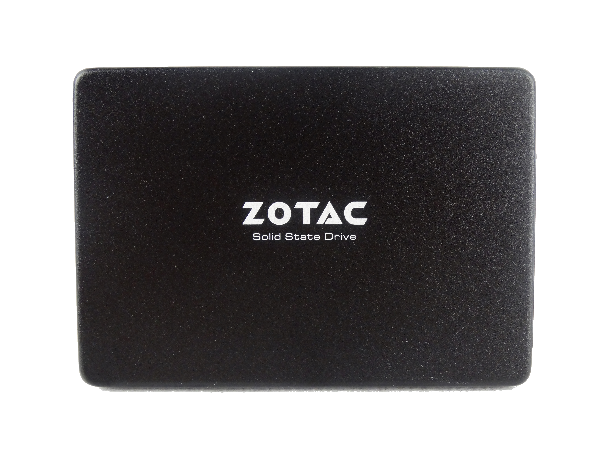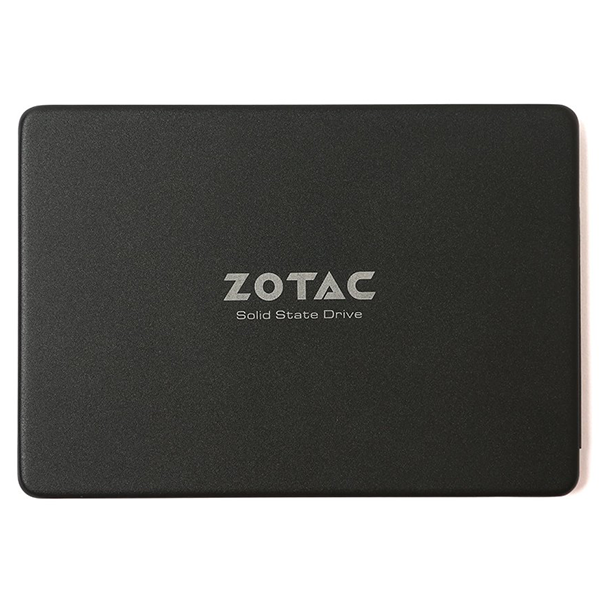Early Verdict
Oversupply has lead to some interesting prices in the SSD world. Zotac paired the right components to get a solid performing SSD to market at a very attractive price point.
Pros
- +
Uses more desirable MLC over TLC
- +
Low price
- +
Reasonable performance
Cons
- -
Still awaiting the 2.0 firmware update that will move the Phison S10 into the premium performance range
Why you can trust Tom's Hardware
Specifications, Pricing, Warranty And Accessories
Phison's quad-core PS3110-S10 controller is officially one year old, but it's only just starting to affect the SSD market in a meaningful way. First released in Corsair's Neutron XT, the S10 was initially intended to operate in the high-end consumer drives. And indeed, on paper, the advanced processor boasts impressive specs. But under benchmark scrutiny, it didn't live up to the hype. Phison worked to increase real-world performance with a series of firmware updates. Today, we have the latest build to test in Zotac's low-cost Premium Edition SSD.
Zotac is well known in several different PC-related product categories. The company tends to focus on gaming, but has planted seeds in other areas over the last few years as well. Recently, low prices on flash helped open the door for its expansion into SSDs. Zotac is hoping that its popularity as a reliable component vendor yields traction with customers who already trust the company. SSDs are just the next frontier.
As of this writing, the Premium Edition SSDs we're testing today are some of the lowest-priced models sold online. That will certainly help grab the attention of builders looking for value in storage.
Technical Specifications
MORE: Best SSDs For The MoneyMORE: Latest Storage News
MORE: Storage in the Forums
Zotac sells the Premium Edition SSD in two popular capacities: 240GB and 480GB. The series targets gamers, but its price and competitive performance are attractive universally.
The Premium Edition SSDs deliver up to 520 MB/s sequential read and 500 MB/s sequential write performance. Zotac publishes its random performance numbers in throughput rather than IOPS, so we'll have to drill down into those figures later in the review.
Phison's S10 controller, which powers both versions of Zotac's drive, is interesting from a technical point of view. However, it's a processor that we feel never realized its full potential. We published our first look at the controller in Phison S10: Toshiba MLC And TLC Versus Micron L95B MLC. And after shipping for a full year, Phison is seeing better performance. The Premium Edition products ship with firmware version 1.6, which doesn't make any explicit claims of improved results. However, we can see areas in our benchmark suite where performance is in fact higher than previous builds.
Get Tom's Hardware's best news and in-depth reviews, straight to your inbox.
Pricing, Warranty And Accessories
The most attractive aspect of the Premium Edition SSD is its price. You can find the 240GB model for less than $65 at Newegg, and the 480GB version is available under $140. Zotac manages to undercut the value-oriented SSD market leader (Samsung's 850 EVO) by a large enough margin to stand out from a crowded field of low-cost SSDs.
The Premium Edition SSDs ship with a three-year warranty, but the drives do not include an accessory package. This is pretty much a bare SSD, with only two paper manuals included.

Chris Ramseyer was a senior contributing editor for Tom's Hardware. He tested and reviewed consumer storage.
-
Onus If I needed another SSD, I'd definitely put this one on my short list. I have a question though, that pertains more to testing in general than to this specific drive, but it certainly applies: will two identical SSDs (including same firmware, e.g. two units bought off the shelf at the same time) have identical performance? We know that the "silicon lottery" affects timing and overclocking limits on RAM; does it also play a role in SSD performance? I would think not, but if so, would love to know why, and how much. Thanks.Reply
-
icepick314 I don't know...Reply
Samsung Evo Pro 1TB with 10 year warranty is around $400-$450...
I say splurge a little and get the capacity, performance, and 10 years of worry-free storage... -
salgado18 ReplyI don't know...
I say if you want a drive for 10 years, wait for the new tech to arrive this year, a lot faster (over 3x) and with new connections (SATA is old already).
Samsung Evo Pro 1TB with 10 year warranty is around $400-$450...
I say splurge a little and get the capacity, performance, and 10 years of worry-free storage... -
LordConrad Just out of curiosity, how do these drives compare to the Samsung 850 Pro on notebook battery life?Reply -
Onus Yes, please add power consumption. The Samsung drives are remarkable in how little idle power they use compared to competitors (I believe it is typically 30%).Reply -
g-unit1111 Reply17403001 said:Just out of curiosity, how do these drives compare to the Samsung 850 Pro on notebook battery life?
Yes. I would be curious about this as well. This looks like a fairly nice drive and $140 for 480GB and Toshiba NAND looks pretty solid and a decent competitor to Samsung. -
shrapnel_indie Well, I wonder how TH would rank Toshiba's Q300 offerings against this and Samsung... from what I seen elsewhere their Q300 series puts up quite a fight with Samsung.Reply -
CRamseyer Thanks for all of the excellent questions.Reply
We tested the Q300 Pro (MLC version) and the review is in queue. We do not have the Q300 drive with TLC.
On the notebook battery life front, we measured the 850 Pro 512GB at 657 minutes. There are so many good drives available now and such a wide divide between the high performance and low cost models that we charts the drives separate.
There are size limits to for the performance charts. At some point I plan to list a couple of hundred drives in massive charts so everyone can see how they all stack up.
The 850 Pro is the only model from Samsung with a 10 year warranty. The 850 EVO carries a 5-year warranty. The SanDisk Extreme PRO also carries 10 years of coverage.

